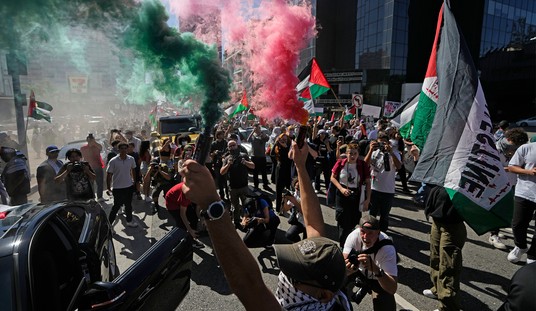On Friday, three coordinated blasts in the Yemeni capital of Sanaa killed over 130 and wounded more than 340 others. The attack on two mosques located across from each other was reportedly carried out by three suicide bombers who targeted Yemenis gathering for Friday prayers. In a statement released shortly after the bombings, a group claiming to be the Yemeni branch of the Islamic State took responsibility for the attack.
“The claim, posted in an online statement, could not immediately be independently confirmed and offered no proof of an IS role,” the Associated Press reported. “It was posted on the same website in which the Islamic State affiliate in Libya claimed responsibility for Wednesday’s deadly attack on a museum in Tunisia.”
The attack reportedly targeted Yemenis associated with the Houthis regime which took control of the government following the ouster of the nation’s pro-Western president in early 2015. A leading Houthi cleric was reportedly killed in this assault.
For their part, the White House insists that there is no evidence that ISIS in Iraq had an operational link to the attacks in Yemen. AP reported, however, that White House Press Sec. Josh Earnest “says the U.S. is looking to see whether IS has a command-and-control structure that would enable it to coordinate the attack.”
Since the fall of the Hadi government, the West’s ability to conduct counterterrorism operations in Yemen has been severely curtailed. Reports have indicated that Washington shifted its support to the Shia Houthis in order to reestablish a presence in Yemen despite the organization’s links to Iran.
In a sense, an attack by the Sunni-dominated Islamist insurgency of ISIS on the Shiite Houthis is an unsurprising development. But while there is clearly a sectarian motive for this attack, there might also be a geopolitical one.
Beyond the West, the greatest threat to the Islamic State is the Islamic Republic. Iran sponsors Bashar al-Assad’s regime in Damascus and Iranian Revolutionary Guards Corps forces have taken the lead in the ground war against ISIS in Iraq. Even as far away as Libya, ISIS-linked militants have begun to execute meticulously planned attacks on Iranian targets. As ISIS is rolled back by superior forces backed by Tehran, Iran’s influence across the region grows.
Not every Shiite in the region is thrilled about Iran’s rapidly expanding zone of influence.
“U.S. detachment, Iranian opportunism and Iraqi dysfunction have converged on Tikrit ahead of a much larger operation in Mosul, whose size of more than a million residents may require some form of U.S. military support if it is to be wrested from Islamic State group control,” US News reported this week. “The presence of foreign Shiite fighters, taking their cues from Tehran, is, however, complicating what U.S. officials for months had touted as their singular effort to help Iraq retake its sovereign territory.”
“You must help us avoid the suffocating embrace of the Persians,” Shiite leaders in Iraq’s government have told their American counterparts in closed-door meetings, according to some in leadership roles during the last war there, warning of the contractual allure of accepting Iranian aid.
The arrangement now appears to be Iraq’s best chance for survival.
Gradually and unyieldingly, the regional sectarian reckoning that ISIS hoped to spark is developing.








Join the conversation as a VIP Member